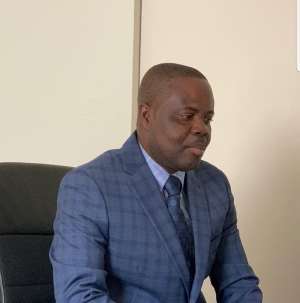
We were created not to dominate, divide, or deceive—but to live in peace, work together, and solve problems side by side. Nature shows us how. Consider the ant: a creature with no king, no politician, no overseer. Yet ants function in perfect harmony. They don’t gossip, they don’t discriminate, and they certainly don’t exploit each other for gain. Their unity fosters survival. Their cooperation sustains a system built not on hierarchy, but on shared purpose.
Imagine if Ghana could mirror that ethic. We speak often of nationalism, but its pride should not be found in flags or slogans alone. It must live in our behavior—especially in how we treat one another. Any act that fosters peace, unity, and understanding strengthens not only relationships, but the very soul of a nation. The essential behaviors that uplift communities and bind society together include.
Active Listening. When people feel genuinely heard, tensions fall and empathy rises. Listening builds bridges where assumptions build walls.
Respect for Differences. Cultural, religious, or personal—our differences should be honored. Unity is not sameness; it’s harmony in diversity.
Kind and Honest Communication. Telling the truth with compassion defuses conflict and builds trust. Clarity without cruelty brings people closer.
Apologizing and Forgiving. Conflict is inevitable. Healing requires humility. Peace lives where grace is practiced.
Sharing and Cooperation. Working together replaces “me versus you” with “us together.” That’s the recipe for shared progress.
Giving the Benefit of the Doubt. Assuming positive intent opens the door to dialogue. Misunderstandings shrink when grace leads the way.
Acts of Service and Generosity. Helping others tears down social walls. Kindness isn’t just an action—it’s a ripple effect.
Standing Up for Others. Justice requires courage. When we protect the vulnerable, we protect the integrity of our whole community.
Practicing Patience. Unity doesn’t rush. Growth takes time. Peace needs space to bloom.
Encouraging Inclusive Participation. When everyone has a voice, everyone has ownership. Inclusion fuels belonging.
But just as good behaviors build, harmful ones destroy. Ghana’s development has been stifled not by a lack of resources, but by destructive habits—often masked as politics, ambition, or strategy. These behaviors flow from insecurity, envy, and the hunger to control.
Ghanaians must avoid these toxic behaviors robbing us of peace, unity and progress:
Slander – False statements damage reputations and bury truth beneath malice.
Labeling – Reducing people to stereotypes flattens identity and fuels division.
Smearing – Character assassination, often politically driven, erodes trust and reason.
Gossip – Idle talk harms relationships and spreads like wildfire.
Blackmail – Manipulation disguised as power. It breeds fear and silence.
Backbiting – Criticizing behind closed doors fractures communities.
Backstabbing – Pretending to support while plotting harm is betrayal, not leadership.
Envy – Resentment of others’ success reflects self-doubt, not justice.
Hate – Blinding anger passed through culture, not corrected by conscience.
Discrimination – Denying equality based on difference undermines democracy itself.
These behaviors weaken the social fabric and erode our collective identity. They turn citizens into spectators, leaders into looters, and communities into battlegrounds of mistrust.
Conclusion: A Call to Re-center the Nation
Ghana doesn’t suffer from a lack of potential—it suffers from a misplacement of values. Like placing the wrong cup on the wrong head, we’ve entrusted vision to division, ethics to ego, and national interest to personal ambition.
But it doesn’t have to stay this way.
If we rediscover humility, reject harmful habits, and emulate the quiet harmony of the ant, Ghana can rise—not through slogans, but through substance. Not through power plays, but through people-first leadership.
Let our unity be louder than our tribes. Let our love be more powerful than our pride. And let the legacy we leave be one our children will thank us for—not just in history books, but in better lives.
By
Gaddiel R. Ackah
[email protected]
U.S. Navy veteran. Lives in U.S.A.
Social Advocate for economic independence, spiritual growth and ethical leadership. His work spans education, business, spirituality, leadership, politics, personal development, national transformation, character development, challenges facing Ghana’s political landscape and creative arts, making him a multifaceted influencer.
Author of Many Leadership and Inspiring books.
Competent Leadership: Becoming Successful Our Happiness. Some Choices Matter Respect Matters Faith Wipes Tears The Power of Faith


